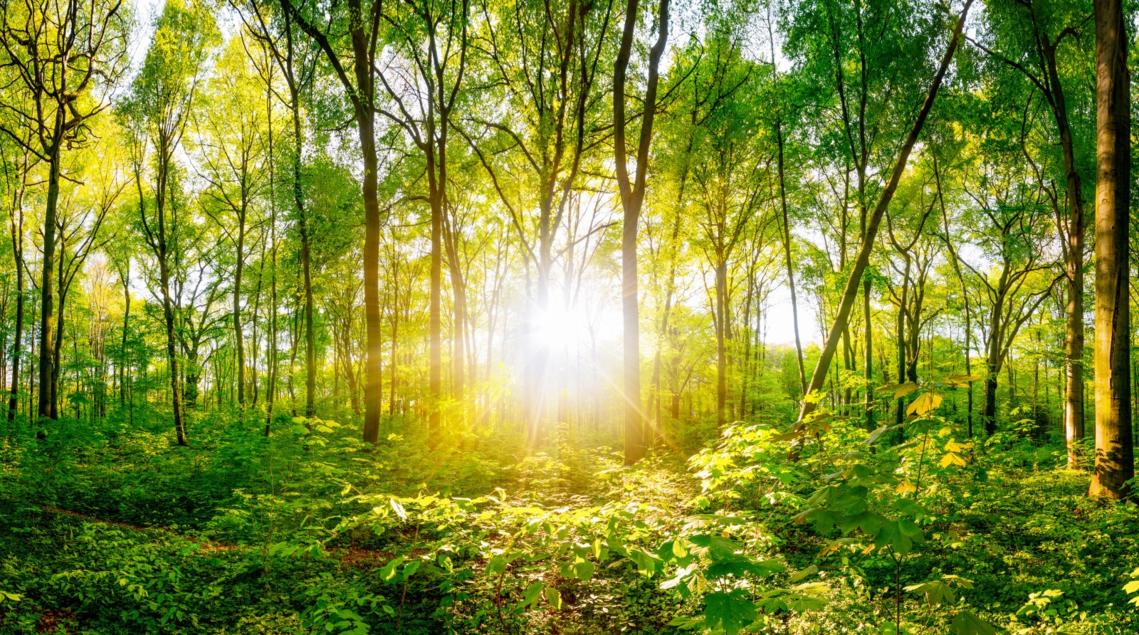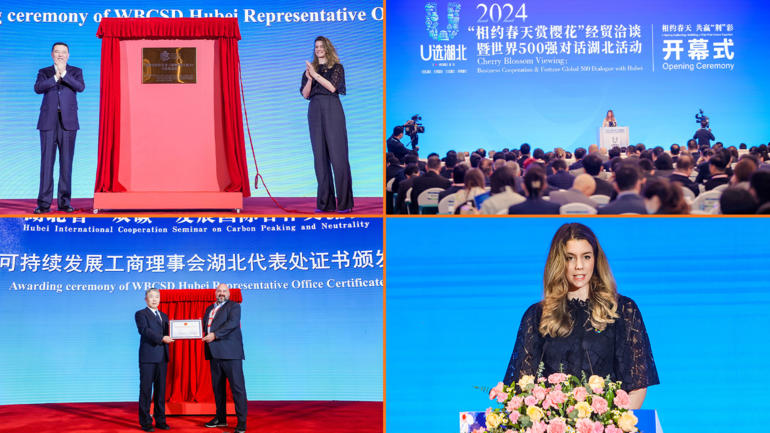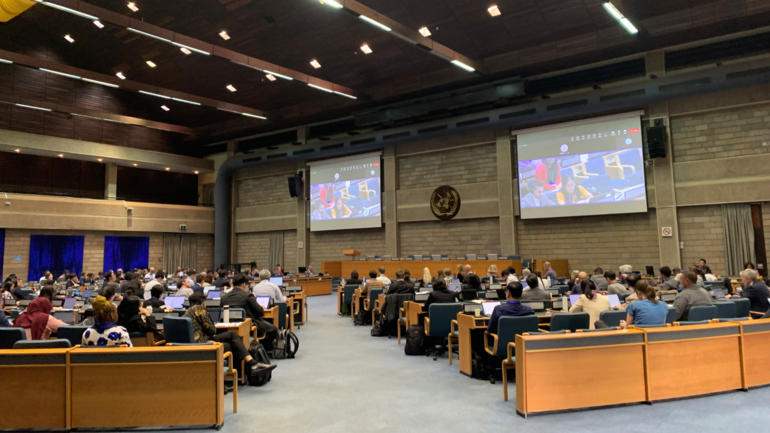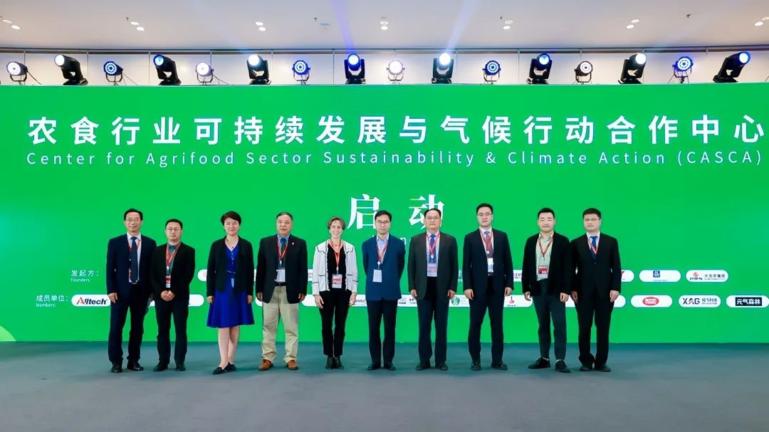- The climate and nature crises are inextricably linked. Business and governments must commit actions that build resilience and ensure the people and planet on which business depends can thrive.
- As government and business leaders gather today in the virtual UNGA Nature Summit, more than 70 countries have signed on to an ambitious pledge to protect biodiversity and commit action for a green recovery.
Convening leaders across hundreds of events, Climate Week NYC and UNGA75 have showed a critical step change in ambition to address the climate and nature crises. The two weeks saw hundreds of new commitments from businesses, cities and regions to reach net-zero emissions by 2060 – or well before – and invest to protect nature. As global leaders today convene for the UNGA Nature Action summit, we need to see further action to build a sustainable recovery from COVID-19 which builds resilience.
What began as a health crisis has quickly become an economic and social crisis. COVID-19 has exposed the interconnected nature of our natural, economic and social systems – and above all— highlighted our vulnerability to systemic risk and the inequities of our economies. With rising numbers of unemployment, malnutrition and extreme poverty in many regions, the pandemic has given us a stark warning of what is at stake if we, collectively, cannot reset our systems for a carbon neutral, nature positive world.
Returning to business-as-usual is not an option if we want an economy that protects our planet and people. We need to harness a green recovery which accelerates a resilient, net-zero carbon recovery with nature at the center. The decisions made now are fundamental for the success of our 2030 and beyond agendas. As governments around the world work on the largest economic stimulus packages in modern times, there is unprecedented potential to shift policy and finance towards climate and nature positive outcomes that address inequality: giving people and nature the right cost of capital. Investing in nature and climate action is essential to delivering a transition which protects livelihoods, health and delivers critical low-carbon, nature-positive jobs.
As we reflect on this past week to mobilize radical climate and sustainable development action, it’s critical that governments and business go beyond talking and commit real actions that accelerate the climate and nature agendas to build long-term resilience for all.
The case for investing in preserving and regenerating nature
The science is clear: if left unchecked, the impacts of climate change will be devastating. With just over a year until COP26, we need countries to raise the ambition of their nationally determined contributions (NDCs) and commit robust planning to transform systems, decouple economic growth from fossil fuels and commit to sustainable finance flows which protect nature and accelerate our transition to net-zero energy. Investing in preserving and regenerating nature is essential to assure co-benefits rather than trade-offs which risk further harming nature.
Investing in a green recovery isn’t just a progressive, environmental route out of a recession, it’s the only way to build long-term resilience into our economic systems. A green recovery is the only way to a healthy planet with healthy people.
Investing in natural – or nature – based solutions is not just about storing carbon and lowering emissions. Another connected crisis to the climate emergency – with as much risk to people and planet— is the need to halt nature loss. Underpinning human prosperity, economic value and security, investing in nature is critical to improving business resilience across supply chains – through the COVID-19 recovery and beyond.
Biodiversity loss and ecosystem collapse was ranked by business, government and civil society as one of the top five threats facing humanity in the next ten years. It brings the overwhelming business case for investing in a nature positive world: with USD $44 trillion of economic value generation – over half the world’s total GDP – moderately or highly dependent on nature and its services. This week, global leaders from 64 countries signed the Leaders’ Pledge for Nature, committed to reversing biodiversity loss by 2030. WBCSD supports this leadership. Only through collective action will business, governments and civil society be able to stop nature loss and start to restore what we have lost by 2030.
Nature-based solutions have a key role in sequestering carbon from hard-to-abate emissions and mitigating climate change. But they must also be scaled up to protect against biodiversity loss, the growing food and nutrition crisis and reverse loss of nature. WBCSD is a founding member of the Business for Nature coalition, which earlier this year launched the call to action, ‘Nature is Everyone’s Business’, urging governments to adopt policies which reverse nature loss in this decade and unleash new opportunities for business to accelerate action towards nature, people and climate goals.
While the world looks to governments to change the rules of the game and commit to incentivizing and directing finance flows to greener, resilient, net-zero, nature-positive carbon investments, business has a role to show the game is changing now – that transformation is already underway in the real economy.
Developed with ERM's SustainAbility Institute, WBCSD’s new Vision 2050 brief takes lessons from COVID-19 to help companies build long-term resilience. With the pandemic revealing our vulnerability to shocks, business needs to commit long-term planning and transform its own purpose – not just by the cost of its shares – but by its cost to people and planet, through environmental, social and governance indicators. Companies need to deeply embed resilience in their business models and success criteria, to prepare for all systemic risks and minimize the impact of shocks on people when they inevitably strike. This means integrating risk into company disclosures by reporting climate risk to the Task Force on Climate-related Financial Disclosures (TCFD) for example, and supporting the call for a taskforce on nature-related financial disclosures to build economic value in protecting nature.
Doubling down on climate commitments toward COP26
One way in which this year’s Climate Week and UNGA events haven’t changed significantly since COP25 is the issue of carbon pricing. WBCSD and progressive business came to COP25 with strong support for governments to agree on the last, crucial piece of the Paris rule book: to establish global, carbon market rules with a high price on carbon, but were deeply disappointed at countries’ failure to deliver.
COVID-19 and the ensuing economic crisis have increased the urgency for business and governments to increase support for carbon pricing – the most effective and cost-efficient means of decoupling our societies from dangerous fossil fuels and offer a smooth, people-focused path to a net-zero, nature positive economy. A strong carbon market which invests in nature-based solutions will also drive financial flows to rural communities, helping shift financial inequities and creating new pathways for equity across value chains.
Co-led by WBCSD and the WEF, the Natural Climate Solutions Alliance brings businesses together from across sectors to commit to pricing carbon and investing in nature based solutions to mitigate climate change and protect nature. Bringing together stakeholders to identify opportunities and barriers to investing in carbon credits, this is an example of business scaling up voluntary carbon markets to show governments and investors evidence of their full potential to reduce greenhouse gas emissions, protect nature and create sustainable jobs and incomes.
With defining milestones for the future of climate and nature action fast approaching -- including the biodiversity and climate COPs -- amid a growing recession and rising inequality, we need leaders to show true accountability to building a resilient recovery from COVID-19. Business is critical to accelerating our transition in the real economy and showing our governments that pairing our economic recovery with climate and nature action is the only recovery for people and planet.
Diane Holdorf is Managing Director, Food & Nature, WBCSD
Claire O’Neill is Managing Director, Climate & Energy, WBCSD








